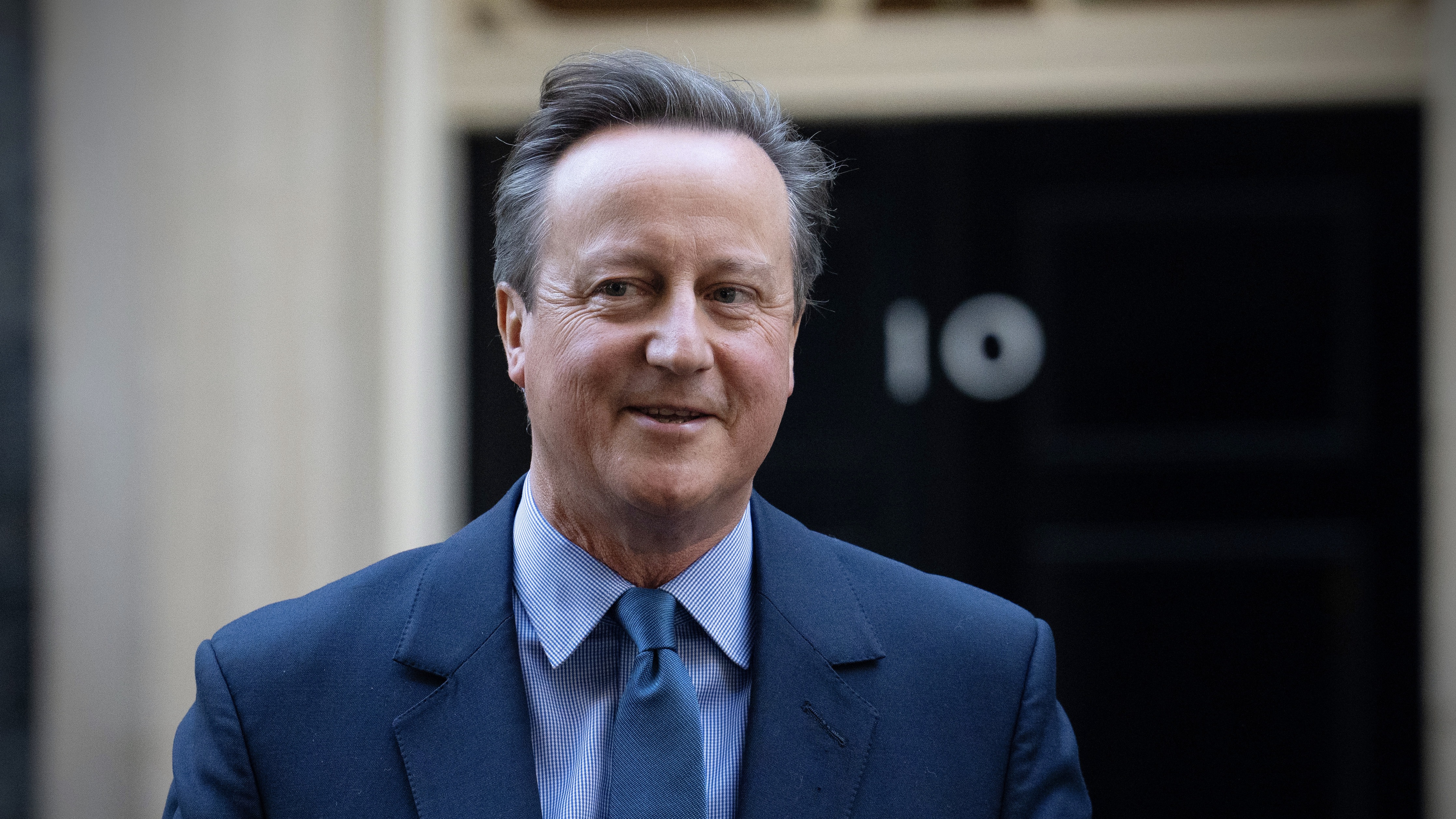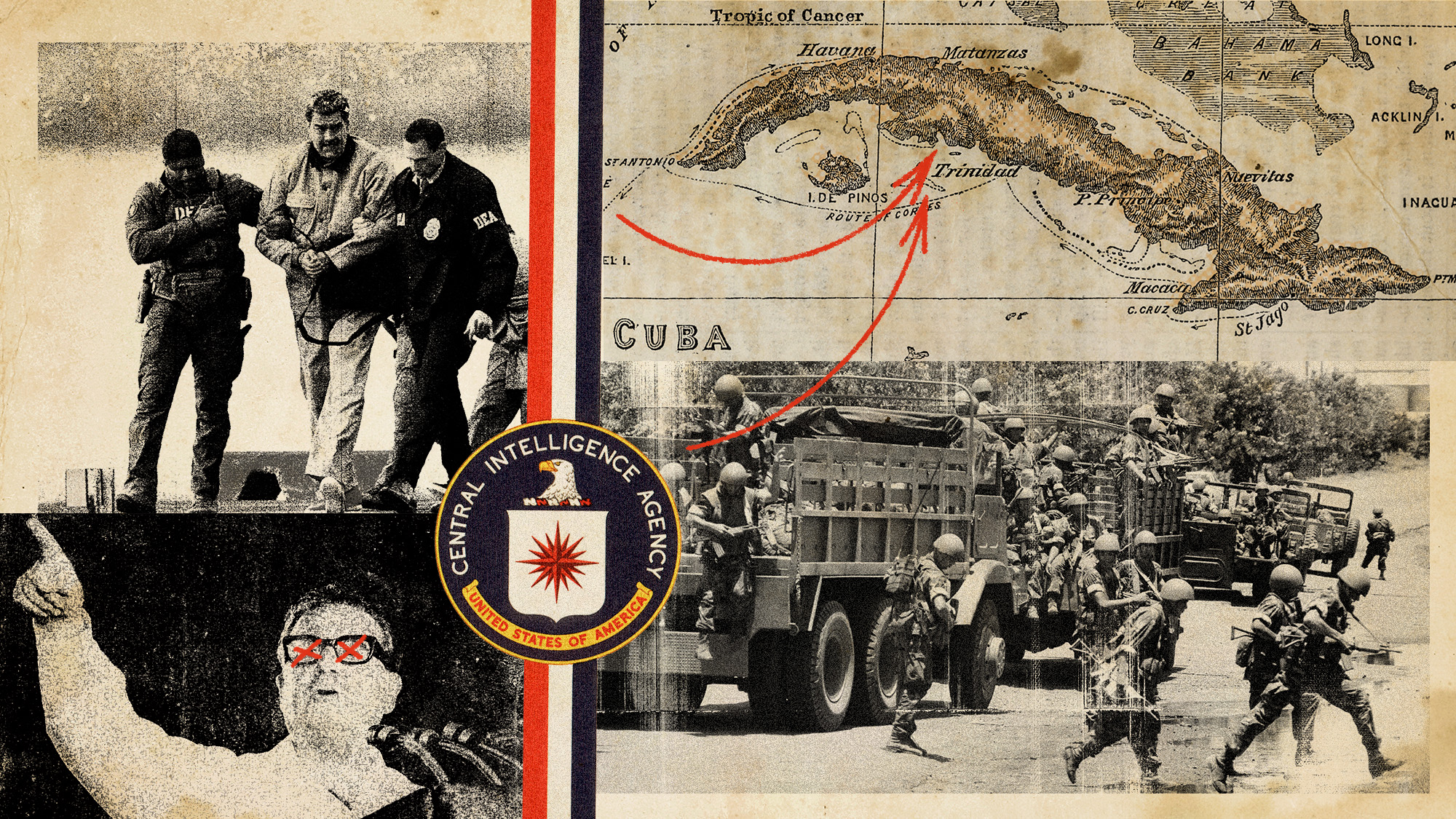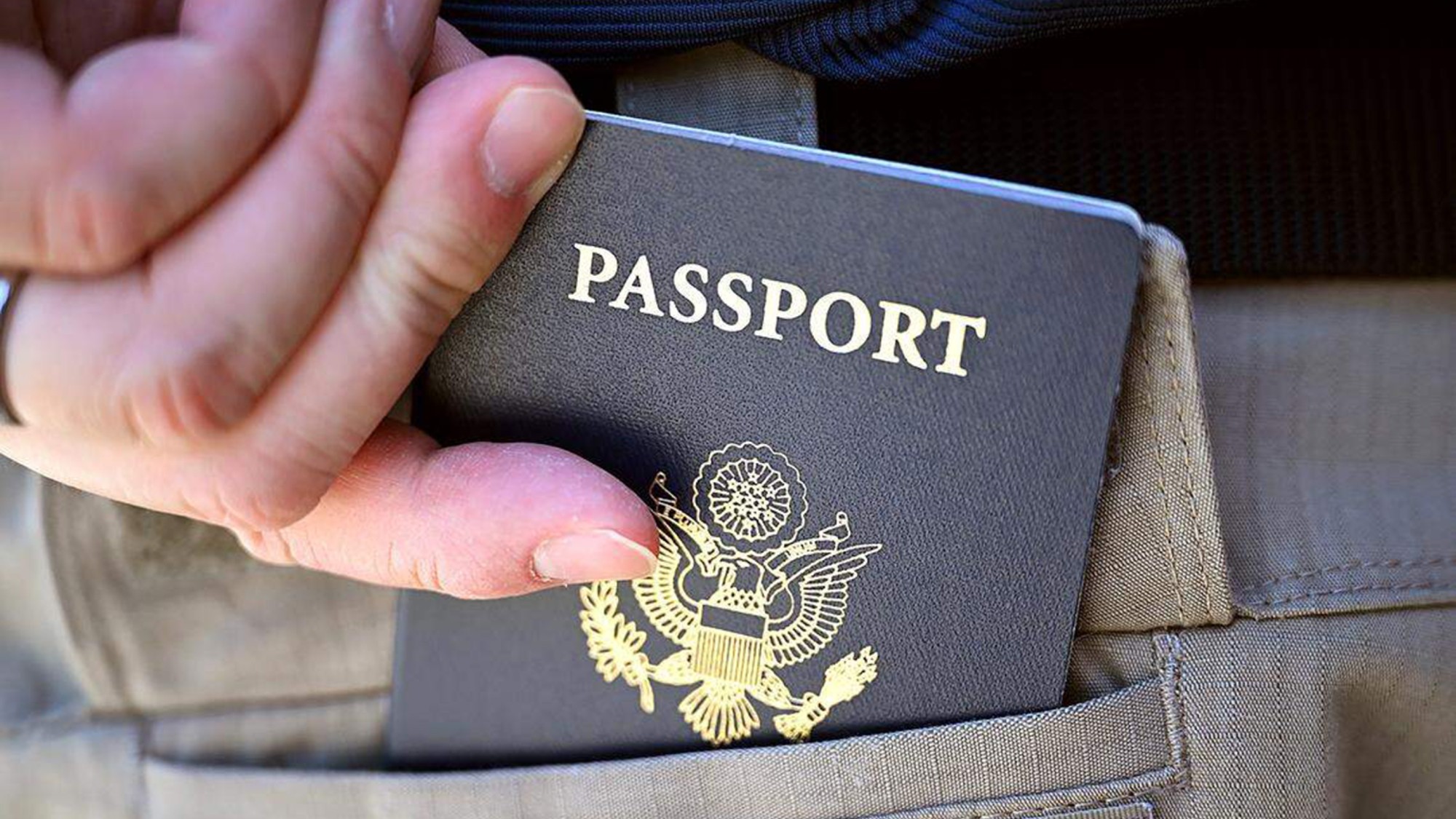David Cameron's foreign policy record examined
The former prime minister has been appointed foreign secretary seven years after resigning as prime minister

A free daily email with the biggest news stories of the day – and the best features from TheWeek.com
You are now subscribed
Your newsletter sign-up was successful
As the dust settles after David Cameron's appointment as foreign secretary, the former Tory leader's track record on the world stage is now under scrutiny.
His legacy as prime minister "is riddled with controversy", said The Guardian's political correspondent Ben Quinn, particularly citing "his triggering of the biggest shift in Britain's foreign relations" since the Second World War.
Cameron, indeed, comes to the role "with some baggage", added BBC News diplomatic correspondent James Landale. He does, however, "bring political heft to the Foreign Office" and "may be seen by allies as a grown-up they can do business with".
The Week
Escape your echo chamber. Get the facts behind the news, plus analysis from multiple perspectives.

Sign up for The Week's Free Newsletters
From our morning news briefing to a weekly Good News Newsletter, get the best of The Week delivered directly to your inbox.
From our morning news briefing to a weekly Good News Newsletter, get the best of The Week delivered directly to your inbox.
As Cameron readies himself to tackle the foreign policy challenges of 2023 and beyond, The Week takes a look at his foreign policy record in detail.
Libya
Cameron urged the UK and the US to join France in launching military action in Libya in 2011, "to halt what he feared would be a 'Srebrenica-style slaughter'," said The Times's chief political correspondent Aubrey Allegretti. This led to the overthrowing of dictator Colonel Muammar Gaddafi, "but left a near failed state in its wake", said BBC News, while critics delivered "damning verdicts" on his intervention, added The Guardian.
The foreign affairs select committee found in 2016 that the intervention was carried out "with no proper intelligence analysis", and "shirked a moral responsibility to help reconstruct the country", said The Guardian.
The report concluded Cameron "must bear the responsibility for Britain's role in the crisis", added Al Jazeera, and The Times described the action as "a millstone round Cameron's neck".
A free daily email with the biggest news stories of the day – and the best features from TheWeek.com
China
A photo of Cameron and China's President Xi Jinping "enjoying pints of IPA" became the "defining image of his government's attempts to court Beijing", said The Guardian.
Xi's visit to the UK in 2015 was hailed as the start of a "golden era" of relations, but The Times's Allegretti said the former prime minister's approach to China will be "the greatest pivot Cameron will have to perform".
This is because Western relations with China "have grown frostier", with Rishi Sunak saying last year that "the so-called 'golden era' is over". The change is in light of Xi's "attempts to suppress democracy in Hong Kong" as well as "preparations for an invasion of Taiwan", said Quinn. Among his duties, the new foreign secretary will, in particular, need to tackle "China's plan to secure global technological dominance", Allegretti continued.
Brexit
Cameron has "no regrets" about calling the 2016 EU referendum, but Britain's influence on the world stage has "never been the same since", said The Guardian's Quinn. Moreover, EU officials were "irritated by" his attempts to renegotiate the UK's relationship with the bloc.
He's also remembered "as the man who caused Brexit to save his own government", one senior EU source said, adding "he is so much discredited and no one will be keen to deal with him".
The Middle East
Cameron previously called Gaza "a prison camp" and has "advocated for a two-state solution" to the Israel-Palestine conflict, according to Al Jazeera, but has "also been a staunch backer of Israel". Nevertheless, while prime minister, Cameron criticised "Israel's "illegal" settlements" in the West Bank, saying in 2010 that "Gaza cannot and must not be allowed to remain a prison camp."
During a previous conflict in 2014, Sayeeda Warsi, the Senior Foreign and Commonwealth Office Minister and Minister of State for Faith and Communities, resigned as a ceasefire "collapsed" and "accused Cameron's government of taking a "morally indefensible" approach to the conflict". She added that his government's response was a factor "behind the radicalisation of British Muslims".
In 2013, he also lost a Commons vote on whether to bomb Syrian forces after they used chemical weapons, which was "a political failure many believe opened the way" for Russia's greater involvement in the Middle East, said BBC News.
Russia
Ever since Putin's invasion of Ukraine in 2022, there have been questions on "whether the West did enough to deter him" in previous years, particularly following Russia's annexing of Crimea in 2014, said The Telegraph.
Arguably though, this is where Cameron was the strongest as he repeatedly warned Putin "he would face "further consequences"" if Russia moved to legitimise Crimea's separation from Ukraine, and when he pushed for tougher measures, "he clashed with Angela Merkel, who resisted his call", said The Telegraph. Britain then introduced an arms embargo and demanded that "Russia be kicked out of G8 meetings", before suspending contact between ministers and Russian counterparts.
Keumars Afifi-Sabet is a freelance writer at The Week Digital, and is the technology editor on Live Science, another Future Publishing brand. He was previously features editor with ITPro, where he commissioned and published in-depth articles around a variety of areas including AI, cloud computing and cybersecurity. As a writer, he specialises in technology and current affairs. In addition to The Week Digital, he contributes to Computeractive and TechRadar, among other publications.
-
 How the FCC’s ‘equal time’ rule works
How the FCC’s ‘equal time’ rule worksIn the Spotlight The law is at the heart of the Colbert-CBS conflict
-
 What is the endgame in the DHS shutdown?
What is the endgame in the DHS shutdown?Today’s Big Question Democrats want to rein in ICE’s immigration crackdown
-
 ‘Poor time management isn’t just an inconvenience’
‘Poor time management isn’t just an inconvenience’Instant Opinion Opinion, comment and editorials of the day
-
 ‘The mark’s significance is psychological, if that’
‘The mark’s significance is psychological, if that’Instant Opinion Opinion, comment and editorials of the day
-
 How ‘Manchesterism’ could change the UK
How ‘Manchesterism’ could change the UKThe Explainer The idea involves shifting a centralized government to more local powers
-
 ‘Dark woke’: what it means and how it might help Democrats
‘Dark woke’: what it means and how it might help DemocratsThe Explainer Some Democrats are embracing crasser rhetoric, respectability be damned
-
 San Francisco tackles affordability problems with free child care
San Francisco tackles affordability problems with free child careThe Explainer The free child care will be offered to thousands of families in the city
-
 A running list of the international figures Donald Trump has pardoned
A running list of the international figures Donald Trump has pardonedin depth The president has grown bolder in flexing executive clemency powers beyond national borders
-
 A running list of US interventions in Latin America and the Caribbean after World War II
A running list of US interventions in Latin America and the Caribbean after World War IIin depth Nicolás Maduro isn’t the first regional leader to be toppled directly or indirectly by the US
-
 The Mint’s 250th anniversary coins face a whitewashing controversy
The Mint’s 250th anniversary coins face a whitewashing controversyThe Explainer The designs omitted several notable moments for civil rights and women’s rights
-
 US citizens are carrying passports amid ICE fears
US citizens are carrying passports amid ICE fearsThe Explainer ‘You do what you have to do to avoid problems,’ one person told The Guardian